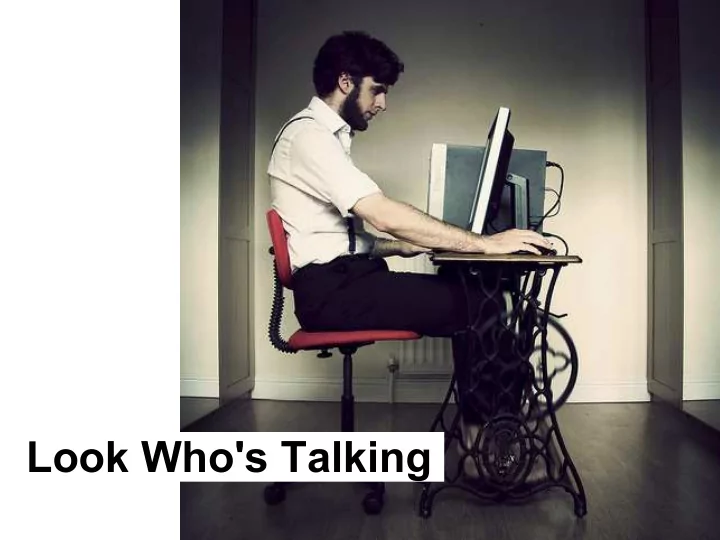

Look Who's Talking
The amish - Cliche for for refusing technology - Departures from Europe as successful innovators - Ancestor of Anabaptist, but broke out and moved to New World in 1710 - Now they are split into: "Old order" - still stick to horse and buggy "New order" - approve use of telephones and powered farm equipment "Beachy Amish" - permit both public electricity and automobiles
Bishops 20 - 30 families constitute a district with one bishop When evaluating technology, the bishops of several districts meets Decisions are usually made through consensus with the community Family in focus - not individuality Concerned about what kind of person one becomes when using the new technology
Does it bring us together, or draw us apart The Bible teaches not to conform to the world - keep a separation "We don't want to stop the progress, we just want to slow it down Adopts technology that can enhance their productivity, wthin their self imposed limits
Telephone Was first not accepted in the business, but it began to be accepted later when they say its benefit In the beginning the amish also put it in their home, but when it become misused the bishops banned it Cell phone - lack of wire - handy but also a challenge Cell phone - harder to maintain separation between home and business "It holds people together by making communication among community members possible, and it separates them from the world and each other." "It is both evil and good"
Modern dilemma: How to balance the rights of the individual with the needs of the community? For the Amish the community comes first! What about the non Amish - the English and the others?
How do we evaluate technology? Use it if it suits us? If it suits our individual needs? "is it convenient or amusing?" "would this have serious implications for my privacy?"
Can we learn anything from the amish? Identity theft social notworks - private data - biometrics
Hans-Joachim Jelena Mirkovic Ivica Milanovic Øyvind Bakkeli
Project goals: Identify most common and accepted authentication methods for mobile services. Research what differences, opportunities and challenges concerning user authentication for mobile services compared with traditional stationary computers. Find out how do people accept them and what are their opinions regarding security on mobile device. Evaluation of a security / usability / privacy trade offs for different authentication mechanisms. Development of prototype based on results from previous steps.
Research on what is already developed and available in the area of user authentication for mobile and stationary services Web browsing Research databases (IEEE, ACM, Elsevier) Literature Getting know the users Questionnaire Prototype Paper prototype Evaluation through interview with users
Classification in four groups: Something that user knows Something that user has Something that user is Location based
Something that user knows PIN/passwords Usability good, but security depends on users Password management problem
Something that user has Tokes can be One Time Password generator devices, password cards, messages Appropriate for mobile devices, because mobile phone can be used both as terminal for providing service and token
Something that user is centers around authentication based on that person's unique traits Fingerprint readers, face recognitions, iris scanning,… Good and bad solutions
Location based Not used so much today Usage of services limited only to some area, or location can be used to determine the level of authentication one need
Results:
Next step in our project We want to determine what users would expect and tolerate to protect their personal information Hard copies and in online version Only stipulation is the respondents should be current or previous users of mobile handsets.
Feedback?
Feedback? Thank you for the help
Recommend
More recommend